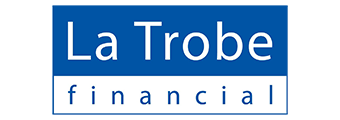Fact Checked
| Lender | Home Loan | Interest Rate | Comparison Rate* | Monthly Repayment | Repayment type | Rate Type | Offset | Redraw | Ongoing Fees | Upfront Fees | Max LVR | Lump Sum Repayment | Extra Repayments | Split Loan Option | Tags | Features | Link | Compare | Promoted Product | Disclosure |
|---|---|---|---|---|---|---|---|---|---|---|---|---|---|---|---|---|---|---|---|---|
6.49% p.a. | 6.51% p.a. | $3,157 | Principal & Interest | Variable | $null | $230 | 70% |
| Promoted | Disclosure | ||||||||||
6.74% p.a. | 6.79% p.a. | $3,240 | Principal & Interest | Variable | $0 | $220 | 70% | Disclosure | ||||||||||||
6.75% p.a. | 7.16% p.a. | $3,243 | Principal & Interest | Variable | $30 | $null | 80% | |||||||||||||
6.59% p.a. | – | $3,190 | Principal & Interest | Variable | $0 | $995 | 80% | |||||||||||||
7.00% p.a. | 7.39% p.a. | $3,327 | Principal & Interest | Variable | $0 | $445 | 60% | |||||||||||||
7.24% p.a. | 7.29% p.a. | $3,407 | Principal & Interest | Variable | $0 | $221 | 80% | Disclosure | ||||||||||||
6.59% p.a. | 7.15% p.a. | $3,190 | Principal & Interest | Variable | $395 | $null | 60% | |||||||||||||
6.99% p.a. | 7.01% p.a. | $3,323 | Principal & Interest | Variable | $0 | $230 | 80% |
| Promoted | Disclosure |
Frequently Asked Questions
SMSFs are bound by the same contribution caps that apply to conventional super funds. Concessional (before tax) contributions are capped at $25,000 per year, while non-concessional (after-tax) contributions are generally capped at $100,000 per year. As the table below outlines, the non-concessional cap can be brought forward by up to $300,000, depending on your super balance:
| Total superannuation balance | Non-concessional contribution cap and bring forward period |
|---|---|
| Less than $1.4 million | Access to $300,000 cap (3 years) |
| Greater than or equal to $1.4 million and less than $1.5 million | Access to $200,000 cap (2 years) |
| Greater than or equal to $1.5 million and less than $1.6 million | Access to $100,000 cap (no bring-forward period, general non-concessional contributions cap applies) |
| Greater than or equal to $1.6 million | Nil |
Source: ATO
Unless you are a qualified professional who uses their qualifications for the services provided, you cannot reimburse yourself. For example, if you are an accountant by trade, and prepare the SMSF’s tax return for which you are a trustee, you can pay yourself for this.
An accountant can greatly assist in the creation of an SMSF. They can help in the application of your ABN to the ATO, and provide advice when creating the trust deed. They can’t solely set up the SMSF though, as trustees will need to decide on things like the structure, trust deed, investment and exit strategy.
There is no law which prevents you from having an SMSF and an industry fund. Managing your own super means you can make contributions into either, and when you create the SMSF, you’re not required to roll over all the funds from your original fund into the SMSF.
Look for local expertise and systems managed in Australia.
Self-managed Super Fund home loans can have some complicated elements to them. There are strict legal obligations for running your SMSF and penalties can apply if you don’t meet these requirements - so it's important you choose a lender you can trust.
We’d suggest you look for a team that is local and experienced to manage your SMSF. Our support team can assist with a simple, low-fee SMSF loan with both variable and fixed-rate options. Whether you’re looking to refinance to a lower rate or purchase a new residential investment property within an SMSF, we’re here to help.








 Harry O'Sullivan
Harry O'Sullivan















